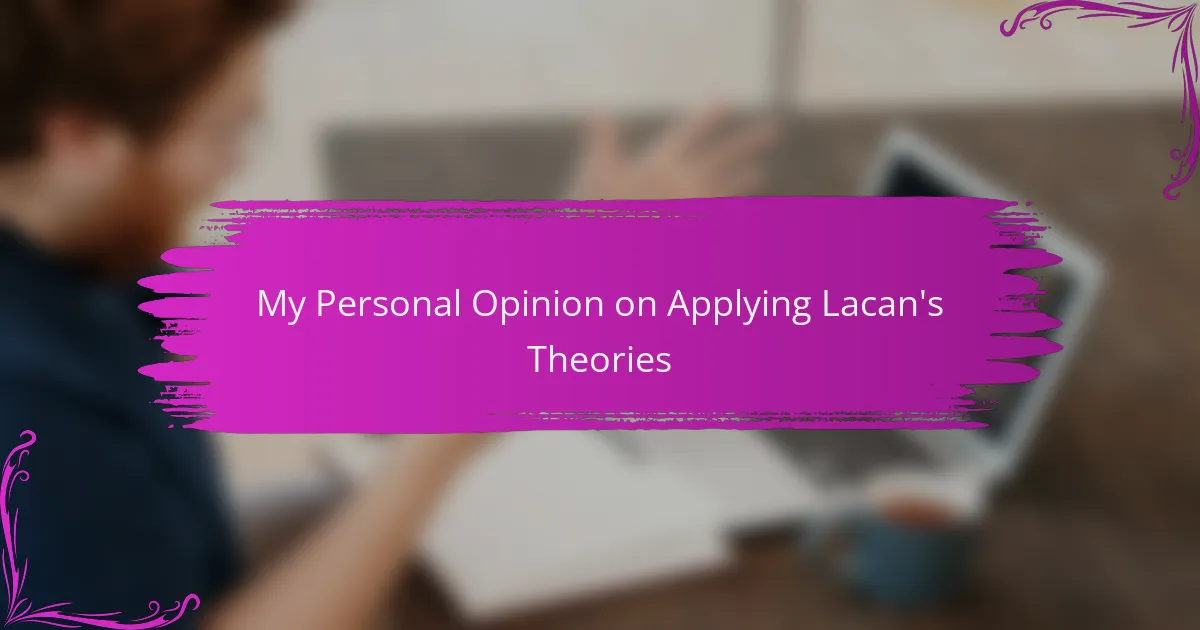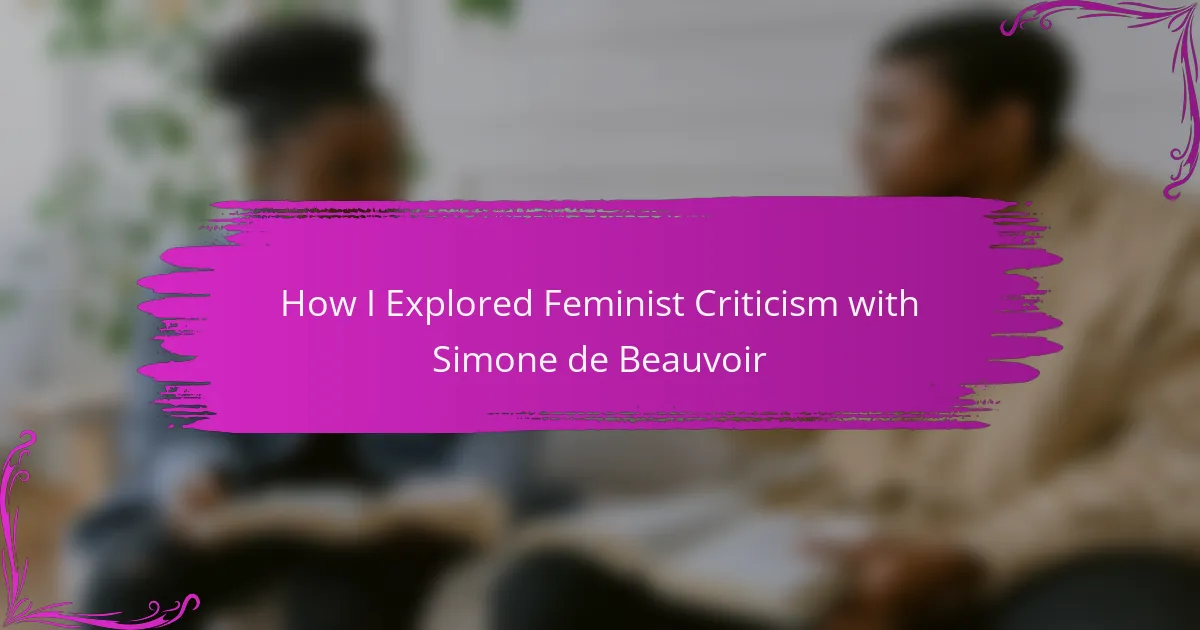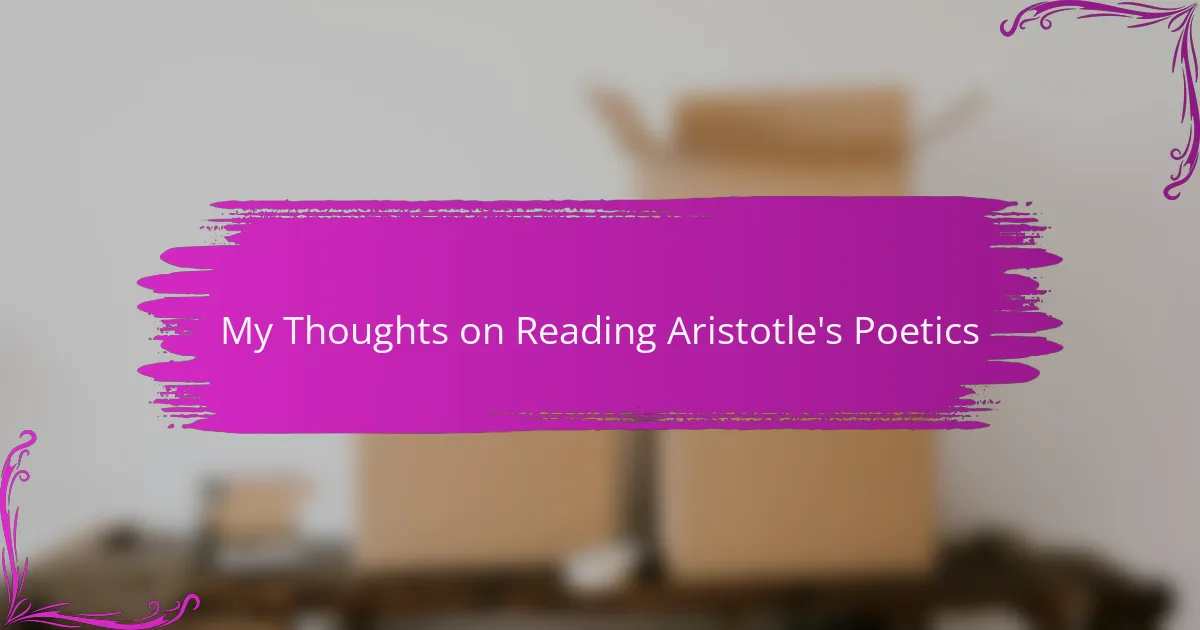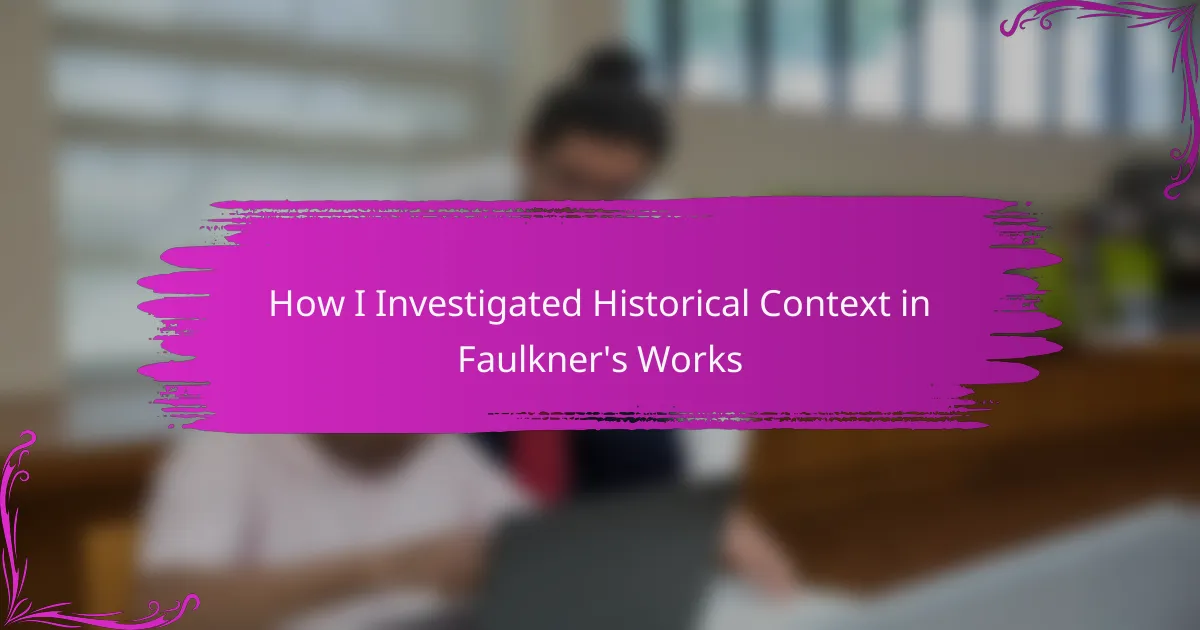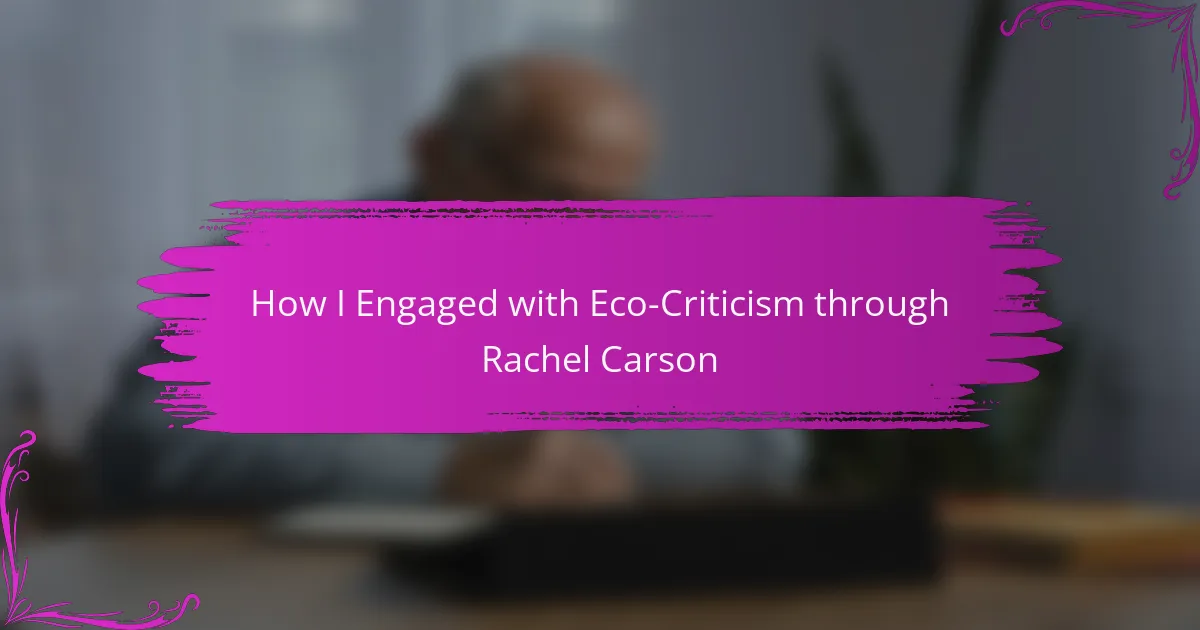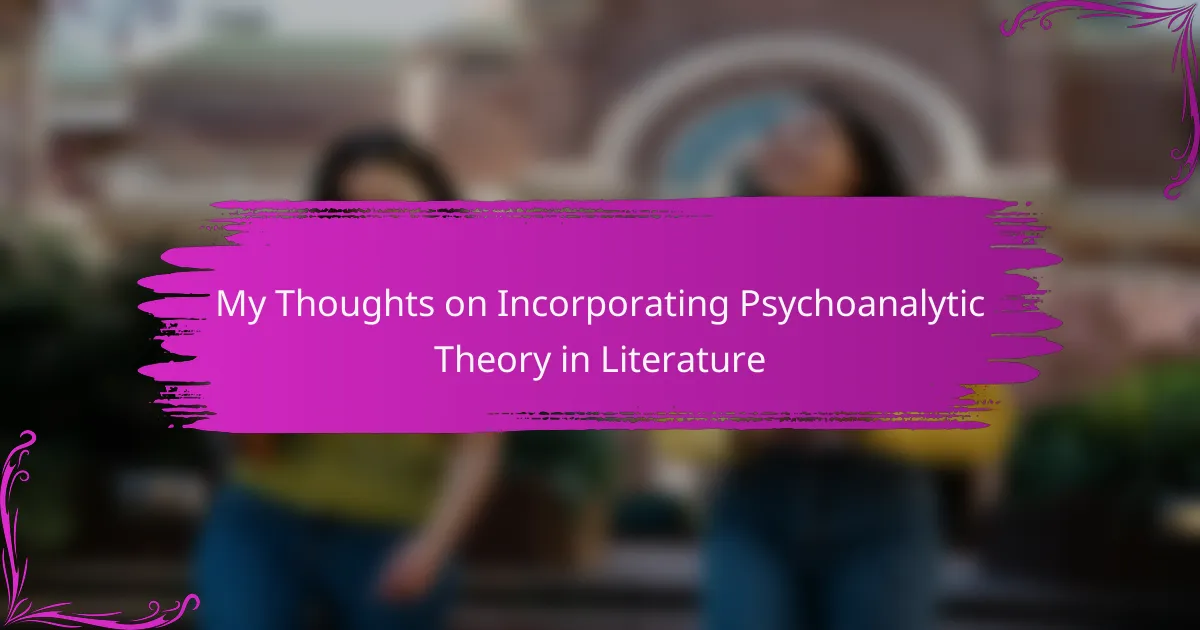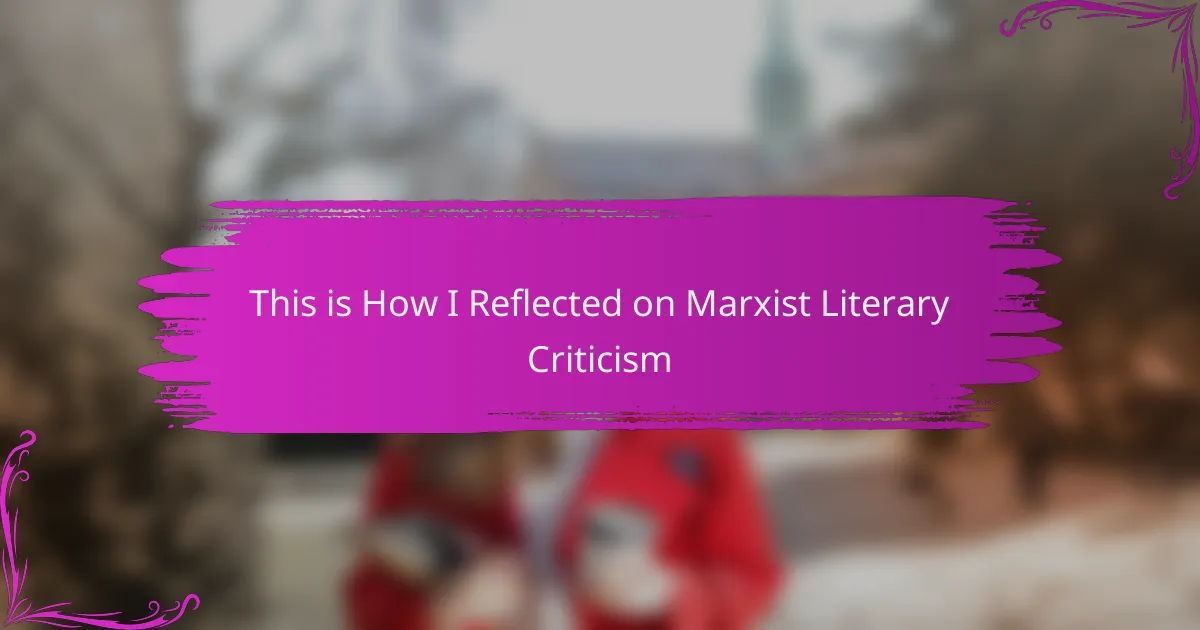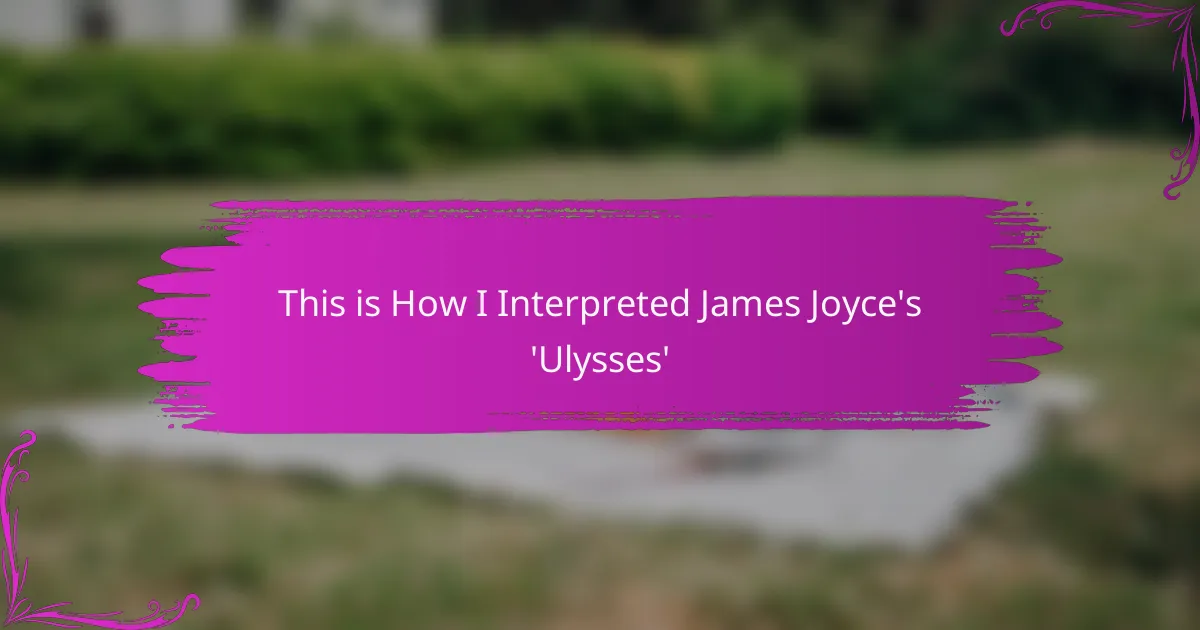Key takeaways Lacan’s theories, particularly the “mirror stage,” deepen our understanding of identity and desire in literature, enhancing character analysis. Incorporating Lacanian concepts in education fosters empathy and critical thinking, allowing students to connect personal experiences with literary texts. The “Real, Imaginary, and Symbolic” realms provide a framework for exploring narrative structures and character motivations, […]
Key takeaways Feminist criticism explores gender dynamics in literature, challenging traditional narratives and highlighting women’s experiences. Simone de Beauvoir’s “The Second [censured]” is a pivotal text that critiques women’s oppression and emphasizes the importance of freedom and choice. Key themes in de Beauvoir’s work include the concept of “the Other,” individual agency, and the quest […]
Key takeaways Aristotle’s Poetics emphasizes the unity and purpose in storytelling, encouraging every element to contribute to the narrative as a whole. The themes of catharsis and mimesis highlight the emotional engagement and connection between art and life, enhancing the reader’s experience. Literature education fosters critical thinking and empathy, allowing individuals to explore diverse perspectives […]
Key takeaways Deconstruction challenges fixed meanings in texts, encouraging multiple interpretations and deeper critical thinking. Applying deconstruction involves identifying dichotomies, questioning assumptions, and embracing ambiguity to enrich understanding. Engaging with deconstruction can transform one’s reading experience, making literature feel dynamic and alive. Collaborative discussions can help overcome challenges in understanding complex texts, enhancing insight and […]
Key takeaways Understanding historical context enhances the depth of literary works, revealing how time and societal dynamics shape characters and narratives. In Faulkner’s writings, elements like post-Civil War tensions and the Great Depression significantly influence character development and themes. Utilizing primary sources and engaging in discussions can deepen one’s analysis of a literary text and […]
Key takeaways Eco-criticism examines the relationship between literature and the environment, promoting awareness and action on ecological issues. Engaging with Rachel Carson’s works, particularly “Silent Spring,” stimulates emotional responses and fosters a sense of responsibility towards nature. Teaching eco-criticism through literature encourages critical thinking and holistic understanding of environmental concerns among students. Integrating creative projects […]
Key takeaways Minimalism in literature emphasizes simplicity and invites deeper reader engagement through unspoken subtext. Hemingway’s key principles include economy of words, the iceberg theory, and a focus on dialogue-driven narratives that reflect authenticity. Character development in Hemingway’s work relies on actions and dialogue rather than detailed backstories, fostering reader intimacy and emotional connection. Practical […]
Key takeaways Psychoanalytic theory explores the unconscious mind, revealing hidden motivations and emotional struggles in characters. This approach deepens understanding of literature by connecting personal experiences with characters’ internal conflicts. Techniques like character motivation analysis and symbolic interpretation help uncover deeper meanings in texts. Applying psychoanalysis enriches the reading experience, transforming literature into a reflection […]
Key takeaways Marxist literary criticism explores the relationship between literature and socio-economic conditions, revealing themes of class struggle and social justice. Integrating Marxist theory in literature education encourages critical thinking and fosters a deeper understanding of societal issues reflected in literary works. Key concepts, such as ideology and class struggle, illuminate how economic disparities shape […]
Key takeaways James Joyce’s “Ulysses” employs a stream-of-consciousness technique that reflects the intricacies of human thought and experience, making it relatable and complex. The novel explores key themes such as identity, belonging, and the significance of everyday life, encouraging readers to find depth in the mundane. Effective methods for teaching “Ulysses” include breaking the text […]
